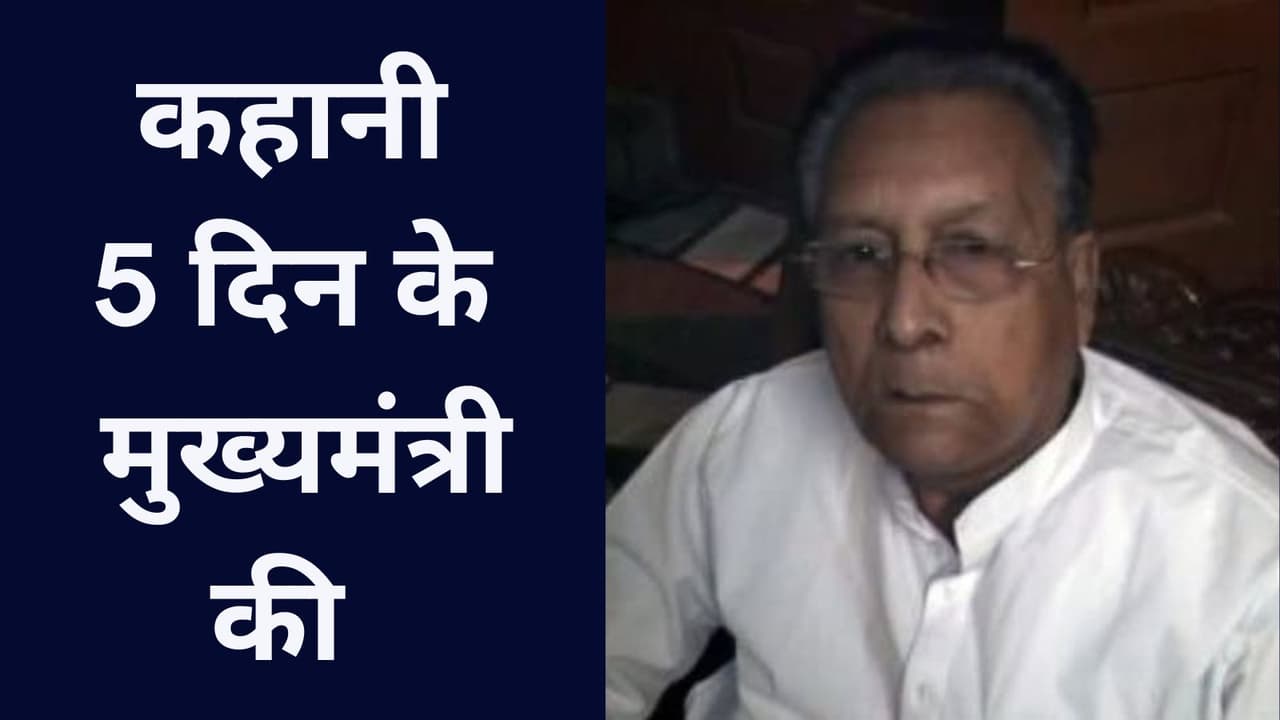Satish Prasad Singh was the first OBC Chief Minister of Bihar, whose term was only 5 days. His contribution proved to be historic in the beginning of social justice politics. Know how he gave the backward class political stake.
Patna: In the politics of Bihar, the backward class is as impressive today, its roots are in the struggles that need to be remembered. One such name is Satish Prasad Singh, who became the first backward class (OBC) Chief Minister of Bihar, but his term was only 5 days, ie about 120 hours. Satish Babu, who became the Chief Minister on 28 January 1968, left the chair on 1 February 1968, but his name became indelible in history.
Who was Satish Prasad Singh?
Born on 1 January 1936 in Kurchakka village in Khagaria district of Bihar, Satish Prasad Singh was from Koiri society. His journey in politics passed through many parties, the beginning of Swatantra Party, then the Socialist Party, and eventually from the Congress. In 1967, he won the Parbatta Assembly and got an opportunity to become an MLA for the first time. Being associated with his struggling personality and social issues, he was considered a representative of the backward class.
Era of unstable politics
The Congress emerged as the largest party in the 1967 assembly elections, but remained away from the majority. As a result, Congress, opposition and small parties together formed unstable government. Chief Minister Mahamaya Prasad Sinha’s government could not run for a long time. In this struggle of power, the pressure to give political stake to backward, Dalit and minority class increased.
Symbolic Chief Minister, real purpose
The Congress made Satish Prasad Singh a political indication by making Satish Prasad Singh the Chief Minister for the balance of power. But this responsibility was only temporary. He was given a clear instruction to remain the Chief Minister until BP Mandal was nominated in the Legislative Council. As soon as the nomination was completed, he resigned on 1 February 1968 and vacated the way. BP Mandal became the Chief Minister on the same day.
Start of change
This term of Satish Babu may have been small, but its message was big. The power in the hands of upper caste leaders for almost two decades reached backward class leaders for the first time. It was the beginning of the politics of social justice in Bihar, which later laid the foundation of the Mandal Commission, reservation and political participation of backward.
private life
Satish Prasad Singh was not only active in politics, but also related to social issues. He encouraged inter -caste marriage and also contributed to the cultural field. He was associated with the film “Jogi Aur Jawani”. His popularity in politics was so much that he also won the Lok Sabha elections. Unfortunately in 2020, he and his wife Gyanakala passed away in Delhi during the Corona infection.
Meaning of record
Today, backward-backward and Dalit class has a decisive role in Bihar politics. At such a time, the 5 -day term of Satish Prasad Singh is not just an administrative change, but a historic moment of change in power structure. This shows how temporary leadership can also decide the direction of social change. His ability to quit the chair made him a precursor to the politics of social change, not just the “shortest time chief minister”. Today, when the role of backward class is considered to be the most important in electoral equations, Satish Prasad Singh’s name is recorded as an inspiration in the political history of Bihar.
